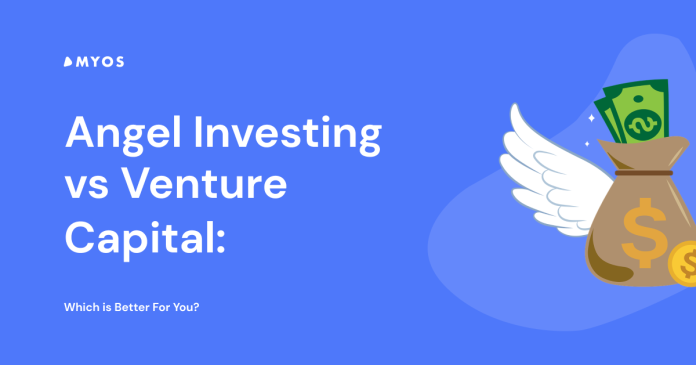When seeking funding for your startup, understanding the distinctions between angel investors and venture capital (VC) can significantly impact your strategy. Both play vital roles in the entrepreneurial ecosystem, but they serve different purposes and operate in unique ways. Here’s a breakdown of the key differences.
1. Definition
Angel Investors: Individuals who invest their personal funds into startups, often in exchange for equity. They typically invest in the early stages of a company’s development.
Venture Capital: Professional investment firms that manage pooled funds from various investors to invest in startups and small businesses with high growth potential. VC firms usually invest in later stages compared to angel investors.
2. Investment Stage
- Angel Investors: Often engage in seed or early-stage funding, helping startups get off the ground.
- Venture Capital: Primarily focus on Series A and later rounds, providing larger amounts of capital to scale established businesses.
3. Investment Amount
- Angel Investors: Typically invest smaller amounts, ranging from $10,000 to $500,000, depending on the investor and the startup’s needs.
- Venture Capital: Generally invest larger sums, often in the millions, to fund significant growth initiatives.
4. Decision-Making Process
- Angel Investors: Usually make decisions quickly, often based on personal beliefs, relationships, or the entrepreneur’s vision.
- Venture Capital: Involves a more structured and lengthy due diligence process, often requiring extensive market research and financial analysis before making a commitment.
5. Involvement and Support
- Angel Investors: Often provide mentorship, guidance, and valuable connections due to their entrepreneurial background. They may be more hands-on in their approach.
- Venture Capital: Typically take a more formal approach, often requiring board seats and involvement in strategic decisions but may not be as hands-on as individual angel investors.
6. Equity and Ownership
- Angel Investors: Usually take a smaller percentage of equity in exchange for their investment, allowing founders to maintain more control over their company.
- Venture Capital: Often require a larger equity stake, which can lead to significant dilution of the founder’s ownership in the company.
7. Exit Strategy
- Angel Investors: Look for a variety of exit strategies, including company sales or initial public offerings (IPOs), but may have a longer investment horizon.
- Venture Capital: Typically expect faster returns, often within a 5-10 year window, and are usually focused on high-growth exits through acquisitions or IPOs.
8. Risk Tolerance
- Angel Investors: More willing to take risks on unproven ideas and early-stage companies, often investing based on passion or personal interest.
- Venture Capital: Generally prefer to invest in startups with proven business models, existing traction, and significant growth potential.
9. Funding Sources
- Angel Investors: Use their own personal funds for investments, which can lead to more flexible terms and conditions.
- Venture Capital: Manage pooled funds from multiple investors, such as institutions, high-net-worth individuals, and pension funds, leading to a more formalized investment structure.
Conclusion
Both angel investors vs venture capitalists play crucial roles in the startup ecosystem, but they serve different stages of a company’s growth and offer distinct advantages. Understanding these differences can help entrepreneurs make informed decisions about which funding path aligns best with their goals and stage of development. By evaluating your startup’s needs and growth trajectory, you can better determine whether to seek angel investment or venture capital funding.






